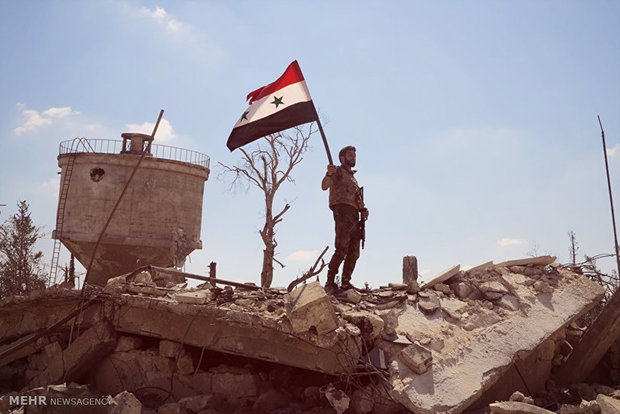"Government forces along with opposition groups have managed to disrupt an offensive mounted by [Daesh] in east Qalamoun. Six settlements in this area with a total population of 25,000 have joined the reconciliation process," Lt. Gen. Sergei Rudskoi, the chief of the Russian General Staff Main Operational Directorate, reported.
Political analyst Andrei Manoilo, a member of the Scholarly Council of Russia's Security Council, told RT that this is a "game-changing" moment since the Syrian Arab Army and armed opposition groups are "increasingly coordinating" their counterterrorism activities against Daesh, al-Nusra Front and other affiliated organizations.
In January, a delegation from Damascus and representatives of the armed opposition took part in talks for the first time since a foreign-sponsored coup morphed into a deadly war in 2011. The negotiations held in Kazakhstan were focused on reinforcing the fragile ceasefire which was unveiled by Russian President Vladimir Putin on December 29. The truce deal was part of a package signed by Damascus and several key opposition groups, with Russia, Turkey and Iran serving as mediators.
The ceasefire has largely held despite numerous violations which the government and the opposition have blamed on each other.
Meanwhile, Russia and Turkey, who serve as guarantors of the ceasefire, have been working on a mechanism to monitor the truce. It is expected to be the main topic on the agenda of a next meeting held in Astana.
Syrian President Bashar al-Assad has expressed cautious optimism with regard to the Astana peace process.
The Astana initiative is "about the dialogue between the Syrians," he said. "It's too early to judge Astana, the first [meeting] was positive because it was about the principles of the unity of Syria, about the Syrians deciding their future. How can you implement this communique? That's the question, and I think we are going to see Astana 2 and so on."
SPUTNIK/MNA


























Your Comment